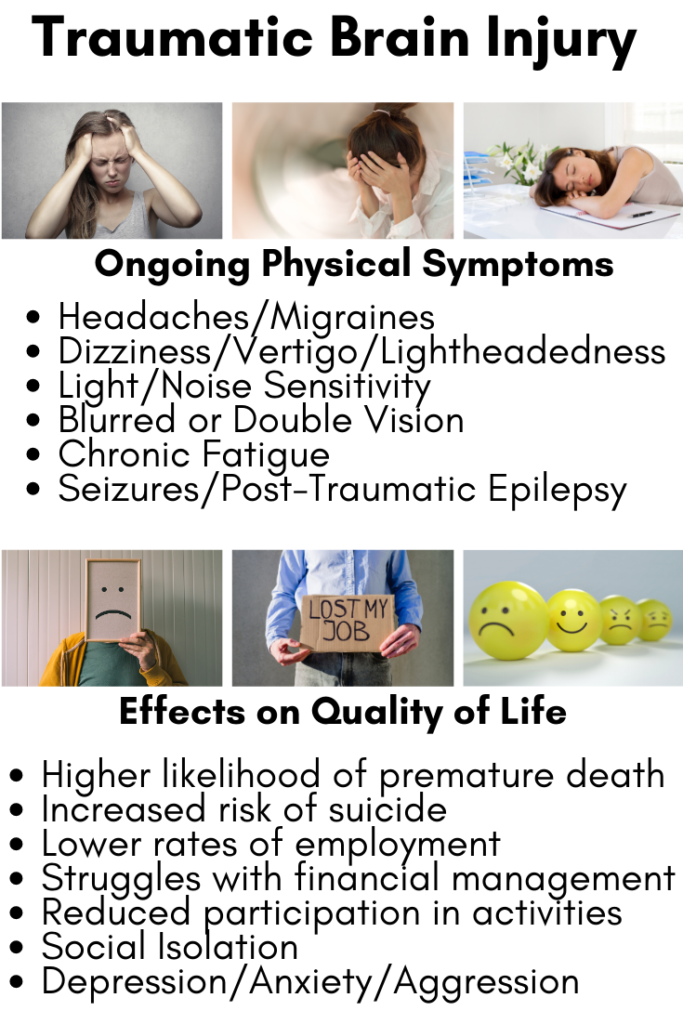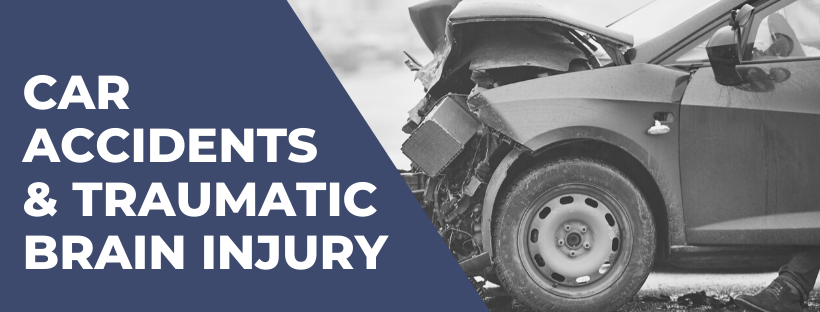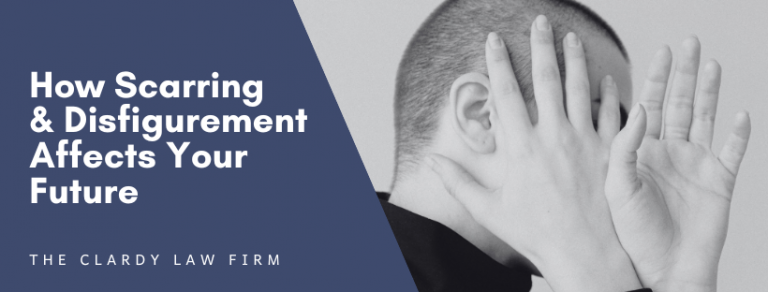Sudden deceleration is a common reason for injury in many traffic accidents. It is perhaps most prevalent in head-on collisions, but rapid deceleration occurs in many other types of car wrecks as well. This is one reason why traumatic brain injury (TBI) occurs in certain car crashes.
In the initial collision between two vehicles, or between a vehicle and a stationary object, the soft tissue of the brain continues to move, often striking the inside of the skull with such impact that bruising and/or bleeding occurs.

Traumatic Brain Injury and Their Long-term Impact
Concussions certainly vary in their degree of severity, but at the very least, they disrupt the brain’s normal activity for anywhere from hours to weeks, or longer. As a result, the full impact of traumatic brain injury is not always readily apparent at first. For example, in approximately five percent of head trauma cases, epilepsy eventually develops, according to the Stanford Epilepsy Center. Epileptic seizures are somewhat more common in the young and the elderly, and they may occur as much as 20 years after the initial accident.
Problems With Traumatic Brain Injury Cases Later In Life
In most cases of traumatic brain injury, the brain works overtime to repair the tissue and internal damage that’s been done to it. It’s a highly effective process, especially under the supervision of an experienced medical professional. Believe it or not, usualy 1/3 of TBI patients recover in good condition within 6 months of their injury.
Unfortunately, not everyone is that lucky. Oftentimes in car accidents, the damage done to the brain is so severe that it can’t be repaired. Worse still is that some TBI patients experience a progressive decline, resulting in long-term or even lifelong damage. Complications like these aren’t immediate. It may take months or years to realize the extent of traumatic brain injury. Because of this, it’s important to seek a personal injury lawyer immediately. You may not see the effects ASAP, but it’s better to be prepared for the worst than push the injury to the side until it’s too late to seek compensation.
Physical Symptoms That May Not Arise Til Later
As mentioned, some of the symptoms of TBI may last for months or years after the accident. Here are just some of the chronic complications clients might face:
Headaches & migraines
It might seem relatively benign to experience a headache every once in awhile. But TBI patients may experience headaches or debilitating migraines on a frequent, often daily, basis. The presence of these headaches after 6 months increases the risk that head pain will last for the rest of the year and beyond.
Dizziness
Dizziness and similar issues, like lightheadedness and vertigo, are symptoms of TBI. At least 1/3 of people have dizziness that persists for at least 5 years after the injury.
Light sensitivity and other visual problems
Sensory complaints are quite common for those who suffer from traumatic brain injury. Many experience sensitivity to light and noise. 25% of people have these issues 12 months after injury. Eye-related conditions like blurry vision or double vision are also a serious risk for people 3 years after injury.
Chronic Fatigue
On top of the other symptoms, people experience terrible physical and mental fatigue. Emotional symptoms like depression, insomnia, aggression, inability to focus or get things done, personality changes, and anxiety can appear. The emotional distress and lack of sleep can negatively impact someone’s ability to work or do basic day-to-day tasks.
Caution In Settling Brain Injury Cases
It is advisable to enter into final insurance settlements with great care and caution when a brain injury occurs. Given the unknowns related to concussions and other traumatic brain injuries, it is often advisable to seek an attorney focused on relevant areas of personal injury law. Working with legal counsel may limit the odds of a premature insurance settlement that undervalues the true extent of the injury.
When you or a family member suffers a brain injury, it is possible to discuss possible personal injury claims in a no-cost consultation with a personal injury lawyer. To ask your questions, or to learn more, please contact us.




